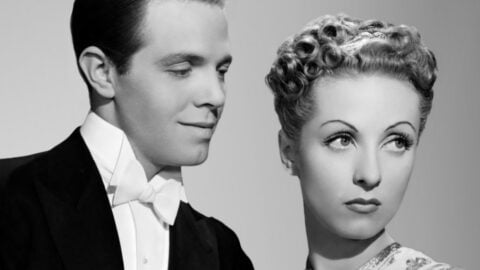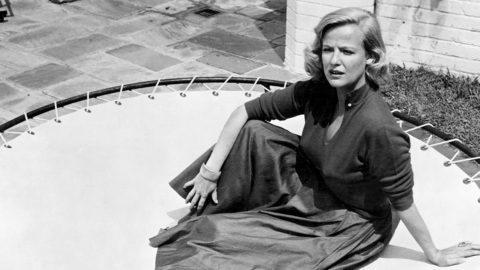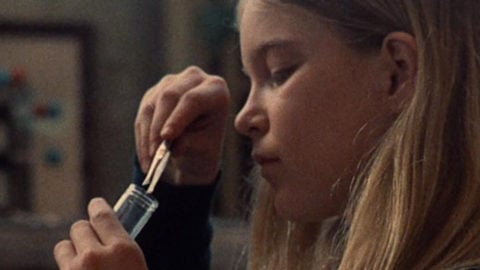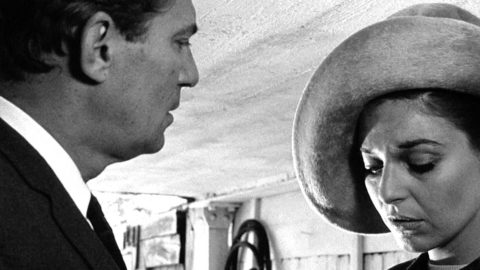TCM Diary: Jo Van Fleet
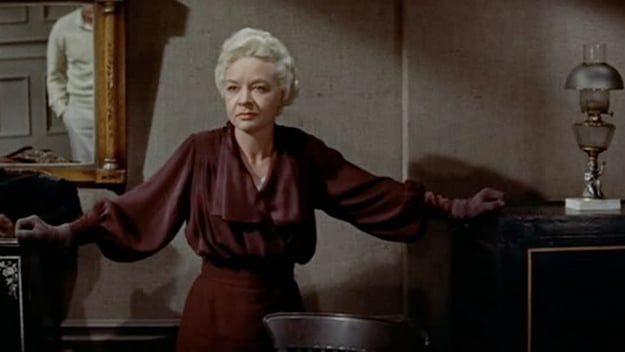
East of Eden
When Elia Kazan cast Jo Van Fleet as Kate in East of Eden, he knew she would have to convey hundreds of pages of backstory that had been cut for his adaptation of John Steinbeck’s novel. Kazan needed her to be both a Freudian archetype and a real woman in pain, a rebel who is hard and soft by turns. It was a tall order, but Van Fleet went on to win the Academy Award for Best Supporting Actress in 1955.
Before East of Eden, Van Fleet had worked mainly in the theater. She had studied with acting coach Sanford Meisner and was a member of the Actors Studio, where she trained to personalize her emotions and dig deep for them internally. But Van Fleet had also played Regan on stage with Louis Calhern in King Lear in 1950, and so she had experience with more heightened language and behavior, and this meant that Kazan could take full advantage of her technical range in his film.
Playing opposite James Dean’s rebellious Cal, Van Fleet gets one richly ironic and complex sequence to make a case for Kate, and she makes it land like a punch in the gut. Cal approaches his mother Kate as she walks to the whorehouse where she is the madam, and she seems touched in a slightly coarse way by his attention. When Cal asks her for money to start a business, Kate looks him up and down a few times with bitter hurt and disappointment and anger on her face.
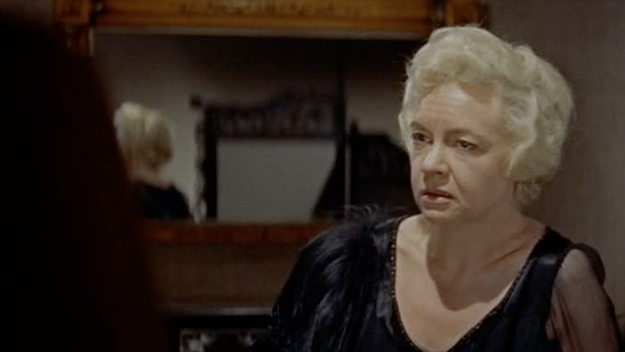
East of Eden
Once they get inside, Van Fleet has to strike just the right balance between theatrical rhetoric and more intimate moments, a mixture of acting styles that must suggest that Kate is mainly on Cal’s side even though she is definitely of another generation. As Kate’s former husband Adam, Raymond Massey gives an old-fashioned and very conventional performance in East of Eden that is meant to contrast with Dean’s Expressionist spontaneity (every word out of Massey’s mouth sounds like it was pre-determined beforehand). Van Fleet has to sometimes play in that set manner here, but she also needs to pick times when she connects with Cal and seduces him a little. And so what Kazan requires from her is very tricky.
Dean is mistrustful of words in East of Eden, but Van Fleet’s Kate sometimes uses them as weapons. When Cal asks Kate why she abandoned her family, she cries out, “Because! Because! He tried to hold me!” The way Van Fleet delivers “because” twice with the same upward inflection has a Shakespearian grandeur to it, very presentational yet rooted in her deep emotional connection to her character. Finally Kate is amused that her ill-gotten gains are going to help to restore her puritanical husband’s finances. “If you don’t think that’s funny, you better not go to college,” she tells Cal. Van Fleet makes this line reverberate very strangely. Her intimidatingly centered, abrupt, kaleidoscopic performance has been working toward this one line where a limited woman tries hard to express something sweeping and limitless. The way she says this line is like a hook that sinks into your skin and you can’t ever get it out.
Van Fleet was 40 years old when she won her Oscar for East of Eden, an expected win that capped a big year in which she made another impression as the stage mother to Lillian Roth (Susan Hayward) in I’ll Cry Tomorrow. Once again her character’s name is Kate, but Katie Roth is a desperate woman whose only lifeline is her daughter’s singing talent. Van Fleet is always touching her stomach or her sternum or her throat with her hand here, and this is the gesture of a woman who needs constant reassurance.
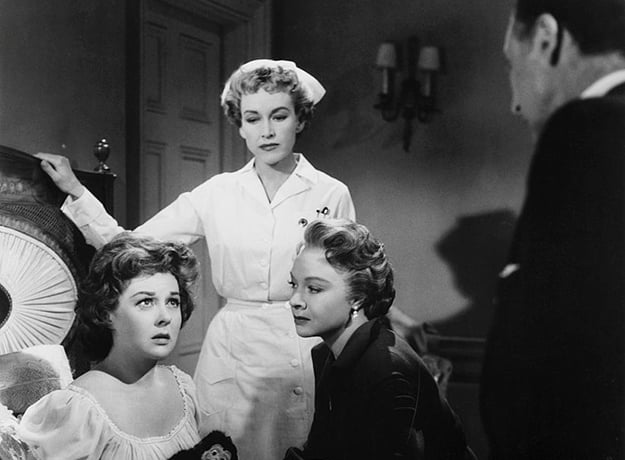
I’ll Cry Tomorrow
The actress makes sure we sometimes see Katie’s resentment of her powerless position whenever she looks away from Lillian and needs to calculate in her head just how manipulative she needs to be with her. When both mother and daughter have descended into poverty because of Lillian’s alcoholism, Van Fleet’s Katie defends herself like a queen in a tragic play but then collapses onto a couch in tears like a little girl. In both East of Eden and I’ll Cry Tomorrow, Van Fleet shows how expert she is at inhabiting one extreme and then another with no need for a moment of transition.
The talent that Van Fleet revealed in these two movies in 1955 should have set her up in juicy character parts for life, but the only really notable role she had after that was as the old Tennessee matriarch in Kazan’s Wild River (1960), where she made her character seem both right and wrong, both elemental and human. The key to her performance in Wild River is that the grandstanding and stubborn woman she is playing is immovable but also scared, vulnerable, and doubtful, and Kazan relied on Van Fleet’s ability to convey many things between her lines.
Van Fleet started doing smaller roles after that, including a one-scene part as Paul Newman’s mother in Cool Hand Luke (1967) and one as a menacing woman in Roman Polanski’s The Tenant (1976). It felt as if the harsh strength of her face and voice was too much or too intimidating for some people, and so she was restricted and often out of work as an older woman. “Jo stagnated, and, since she knew it, was bitter,” Kazan said. “And as she became bitter, she became more difficult.”
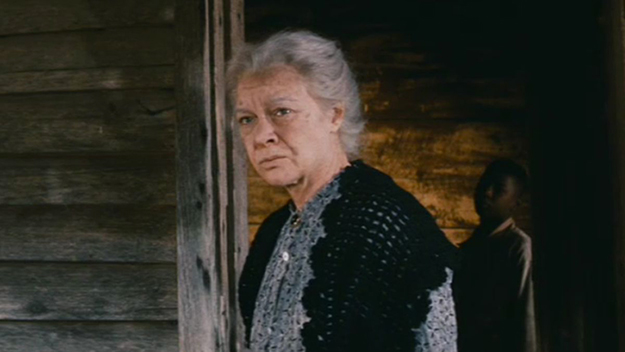
Wild River
By the 1980s observers like the writer James Grissom reported that Van Fleet had become a kind of ghost on the Upper West Side of Manhattan, slamming her Oscar down on counters as if that might pay for her food. Her message both on screen and off seemed to have become resoundingly negative in outlook, as if she had looked life up and down and said, “No sale.” But Van Fleet had made her impact.
East of Eden, I’ll Cry Tomorrow, and Wild River air May 13 on Turner Classic Movies.
Dan Callahan is the author of Barbara Stanwyck: The Miracle Woman (2012) and Vanessa: The Life of Vanessa Redgrave (2014).



